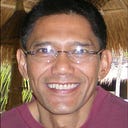Wealth, What a Concept? (Dr. Buckminster Fuller and My Favorite Definition of “Wealth”)
“It’s not how much you earn that makes you wealthy, but how much you can save that really counts…”
Don’t get me wrong, I am not advocating life as a penny-pincher or urging you to become a hermit.
There are too many sad stories about lonely, old people whom everyone assumed to be poor; mainly because they could be seen eating cat food and living in a dump.
Upon their death, authorities, neighbors and relatives are equally astonished and dumbfounded to find thousands of dollars stuffed into their mattresses or hidden under their ratty, soon-to-be-fossilized furniture!
This is a serious money neurosis.
It’s a deep-seated, maladaptive relationship with money that stems from many causes — far too many to fully discuss in this article, such as:
- Early life trauma
- A macroeconomic catastrophe
- Abusive parents that equated money with love and rationed both. These cruel parents routinely used money and love interchangeably as daily punishments or a rewards.
- Generational poverty
- Sudden poverty from affluence
- Unexpected “lottery-style” riches
- And many more psycho-social factors…
These miserable people hoard money; even though they have plenty of it!
They fear it.
They fear to spend it — even to the detriment of their own health and mental well-being.
They epitomize the “scarcity mentality”; and unless some profound introspection occurs, nothing will change for them.
“Your true wealth is your time and freedom. Money is just a tool for trading your time, a container to store your economic energy until you’re ready to deploy it.”
(Mike Maloney, https://goldsilver.com/hidden-secrets/)
“Most people focus on getting rich rather than becoming wealthy.”
(Dr. R. Buckminster Fuller — architect, futurist, inventor and visionary.)
Source (Base Source #1) (Base Source #2)
My favorite definition of “Wealth” is from Dr. Buckminster Fuller. He measured wealth, not in the amount of currency one possesses, but in units of time.
In other words, Dr. Fuller defines wealth as: “A person’s ability to survive X number of days forward.”
What does this mean?
Simple.
First, it implies that if economic homeostasis is achieved (income equals to or is greater than expenses), you’re already wealthy.
And secondly, the number of days or years you can survive while decreasing work (or quitting work altogether) and still remain at or above economic homeostasis determines how “wealthy” you truly are.
If you think of it, it’s a beautifully simple and empowering concept.
It depends totally on an individual’s choices, not by some outside entity.
In the end, each individual has the responsibility for (and the ability to influence) their own wealth.
Keeping Dr. Fuller’s premise in mind, it all boils down to this:
To be wealthier, choose to make and save more or decide to adjust the rate/amount of spending; translated: Live within your means, or get more “means”.
(I’m truly amazed that this isn’t a “No-Brainer” for everyone!)
About the Author
Believing that school was too boring, he dropped out of High School early; only to earn an AA, BS and MBA in less than 4 years much later in life — while working full-time as a Navy/Marine Corps Medic.
In spite of a fear of heights and deep water, he performed high altitude, free-fall parachute jumps and hazardous diving ops in deep, open ocean water.
After 24 years of active duty, he retired in Asia.
Since then, he’s been a full-time, single papa and actively pursuing his varied passions (Writing, Disruptive Technology, Computer Science and Cryptocurrency — plus more hobbies too boring or bizarre for most folk).
He lives on an island paradise with his teenage daughter, longtime girlfriend and three dogs.
